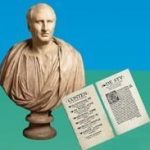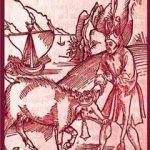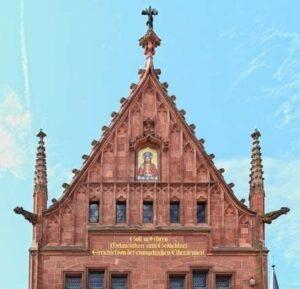"We are born to communicate with one another"
The Humanists were convinced that an educated person will also act decently. Linguistic and literary education will also bring goodness rectitude. The humanists called that humanitas. The concept goes back to Seneca and Cicero. “Humanity” means that human beings are no longer guided by their selfish interests. Instead they follow the universal human moral imperatives and prohibitions. They will consider moderation, harmony, compassion, orderliness and open-mindedness as virtues. A “humane” person feels responsible for society.
The Humanists consider the education and training of people to be their most important responsibilities.
Sebastian Brant was a humanist from the upper Rhine. In The Ship of Fools , that first appeared in 1494, he invented a character called Grobian (German : grob ), whose name expressed his nature, that of a rough brute. With this rough and sometimes violent person, Brant wanted to hold up a mirror to his readers and thereby encourage them to strive for education, virtue and humanity.




